
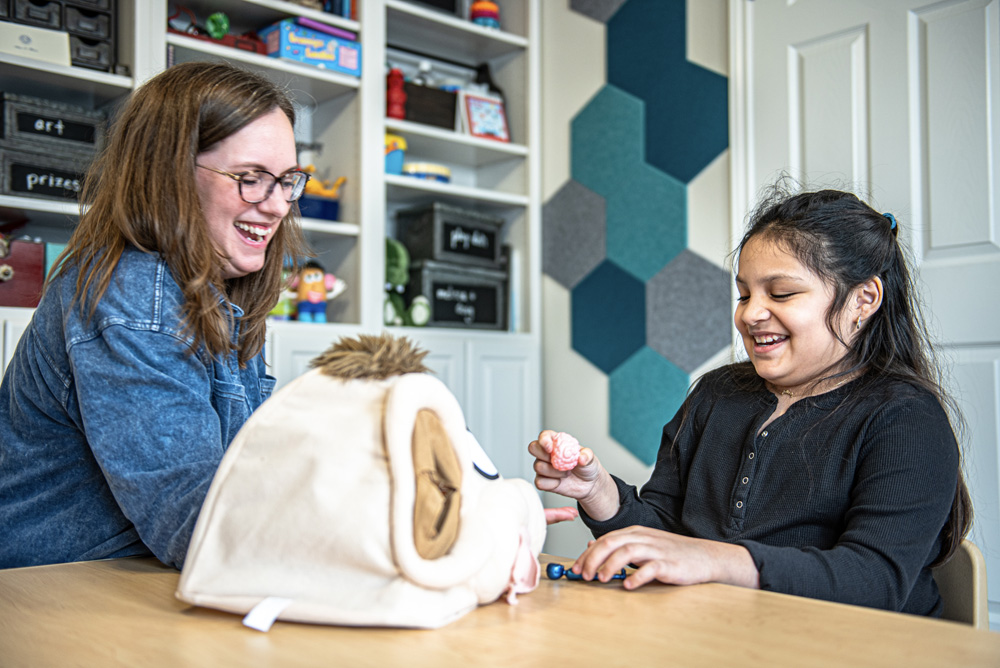
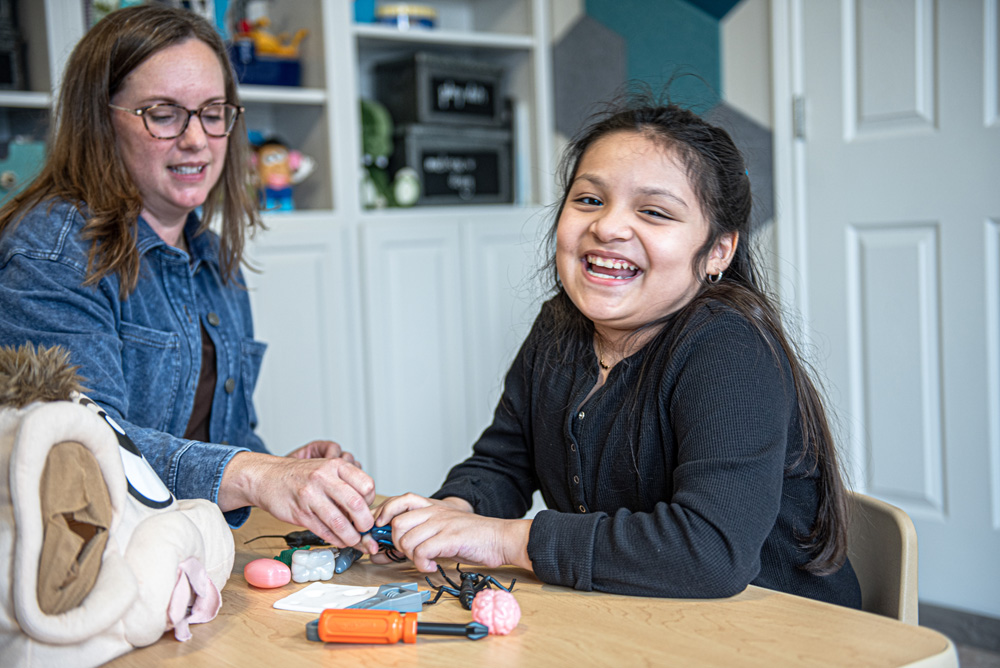
Expressive language is the ability to put thoughts into words, phrases, or sentences. It allows us to label objects, describe actions, ask questions, share ideas, and engage in conversations. Expressive language components include:
✔ Vocabulary Use – Finding the right words to express thoughts
✔ Sentence Structure – Organizing words into grammatically correct phrases and sentences
✔ Narrative Skills – Sharing stories or describing events in a logical sequence
✔ Word Retrieval – Accessing words quickly and clearly during conversation
Expressive language disorders can be developmental or acquired. Expressive language difficulties frequently co-occur with difficulties such as speech sound disorders, ADHD, learning disabilities, or neurological events like brain injury or stroke.
The Importance of Expressive Language
Expressive language is essential for daily communication, learning, and social interaction. It allows individuals to:
✅ Share thoughts, needs, and ideas
✅ Participate in conversations
✅ Express emotions and personal experiences
✅ Succeed in academic or work environments
✅ Build and maintain relationships
When expressive language is delayed or disrupted, it can lead to frustration, social withdrawal, or academic challenges. Fortunately, expressive language therapy can support meaningful improvement by building confidence, clarity, and communication skills.


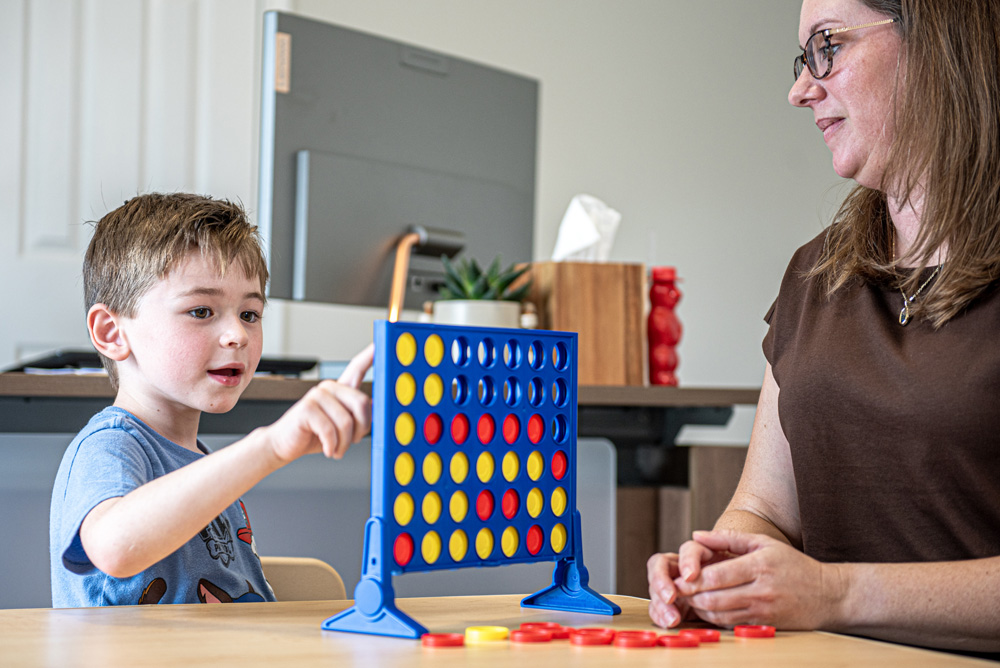
Expressive language plays a significant role in overall development. It affects academic success, social interactions, and emotional well-being. Children with strong expressive language skills perform better in school. They can articulate their thoughts and ideas effectively. This ability helps them engage in classroom discussions and express their understanding of topics.
Socially, expressive language allows children to build friendships. Effective communication helps them participate in group activities and games. Children who struggle with expressive language may find it challenging to form relationships. This difficulty can lead to frustration, social isolation, and behavioral issues.
Emotionally, good expressive language skills empower children to communicate feelings. They can express happiness, sadness, anger, or frustration verbally. This ability helps children cope with emotions and reduces the likelihood of behavioral outbursts.
Expressive language develops progressively from infancy to childhood. Each stage builds upon previous skills.
✔ Limited vocabulary for their age
✔ Difficulty combining words into meaningful sentences
✔ Using gestures or pointing more than spoken words
✔ Challenges telling stories or describing events
✔ Frequent pauses or word-finding struggles Parents can encourage expressive language development through:
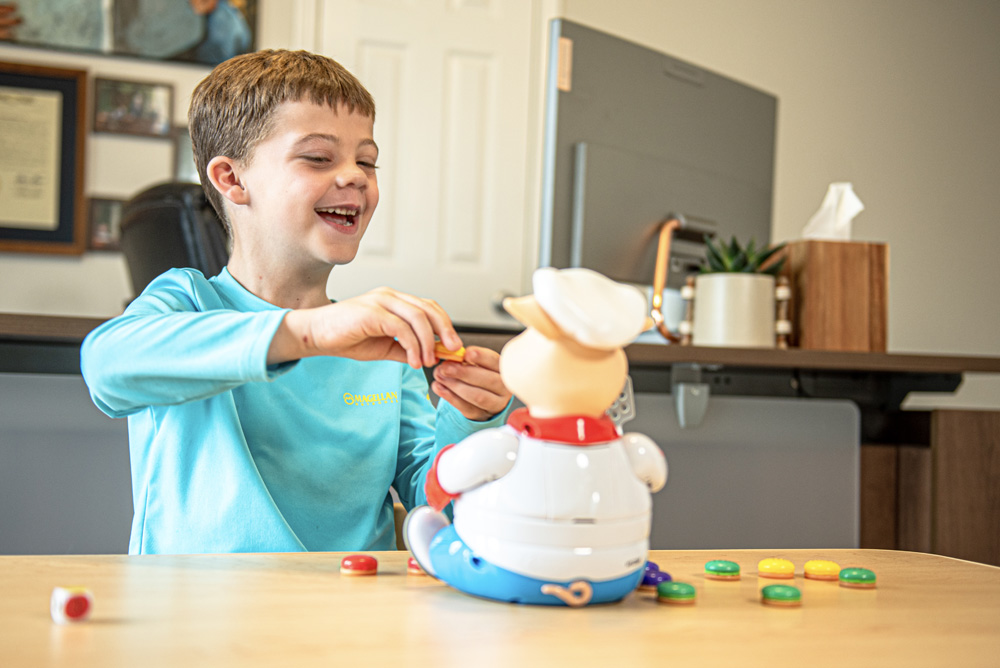
✔ Difficulty putting thoughts into words
✔ Word-finding problems or frequent “tip of the tongue” moments
✔ Short, incomplete, or disorganized speech
✔ Trouble describing ideas, objects, or sequences clearly
✔ Frustration during conversations
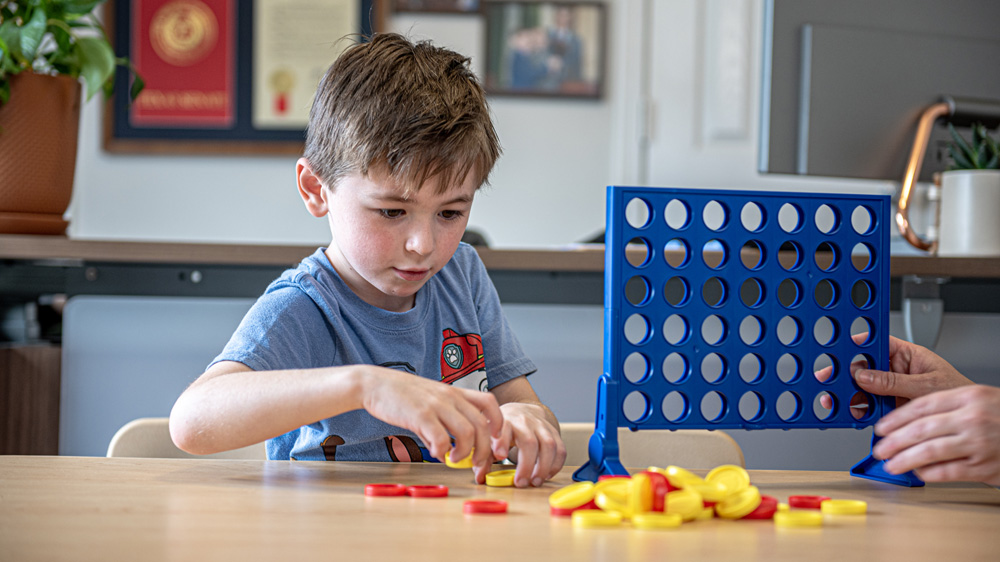
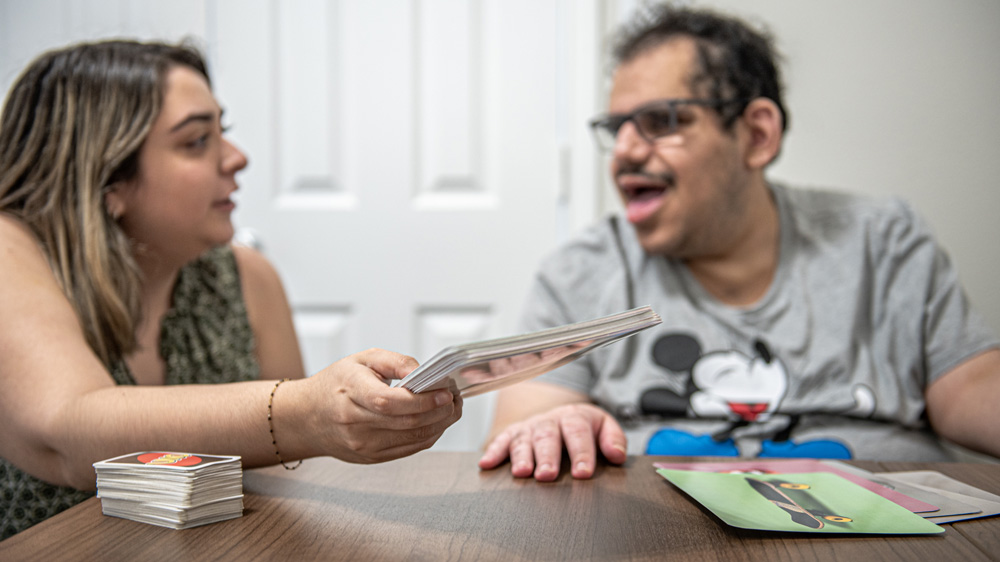
Expressive language develops and changes throughout life.
Infants begin by using sounds, cries, and gestures to express needs. As they grow, children build vocabulary and learn to form sentences, ask questions, and tell stories. Expressive language continues to mature through adolescence and adulthood, supporting communication in increasingly complex environments.
In older adults, expressive language may be affected by stroke, brain injury, or cognitive changes.
A language evaluation can help identify strengths and challenges in expression and guide personalized therapy.
References:
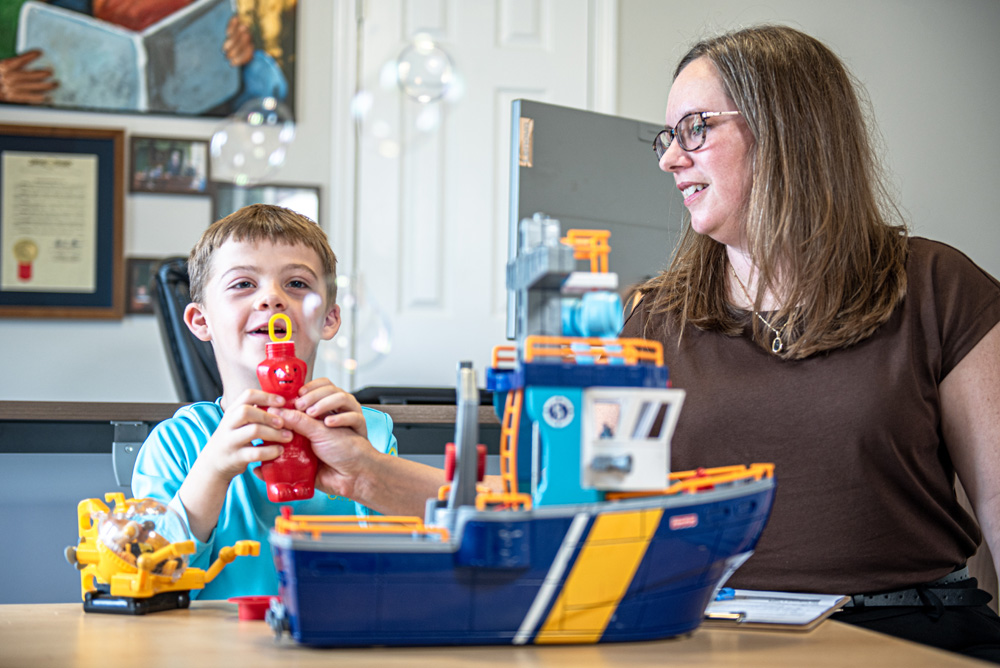
Expressive language differences may arise from a variety of factors:
✔ Developmental Delays – Some children acquire language skills later than expected
✔ Neurological Conditions – Stroke, traumatic brain injury, or progressive conditions can affect language
✔ Language-Based Learning Disabilities – Can impact vocabulary, grammar, and sentence organization
✔ Autism Spectrum Disorder – May include expressive language differences
✔ Cognitive or Memory Challenges – Difficulty organizing thoughts or retrieving words
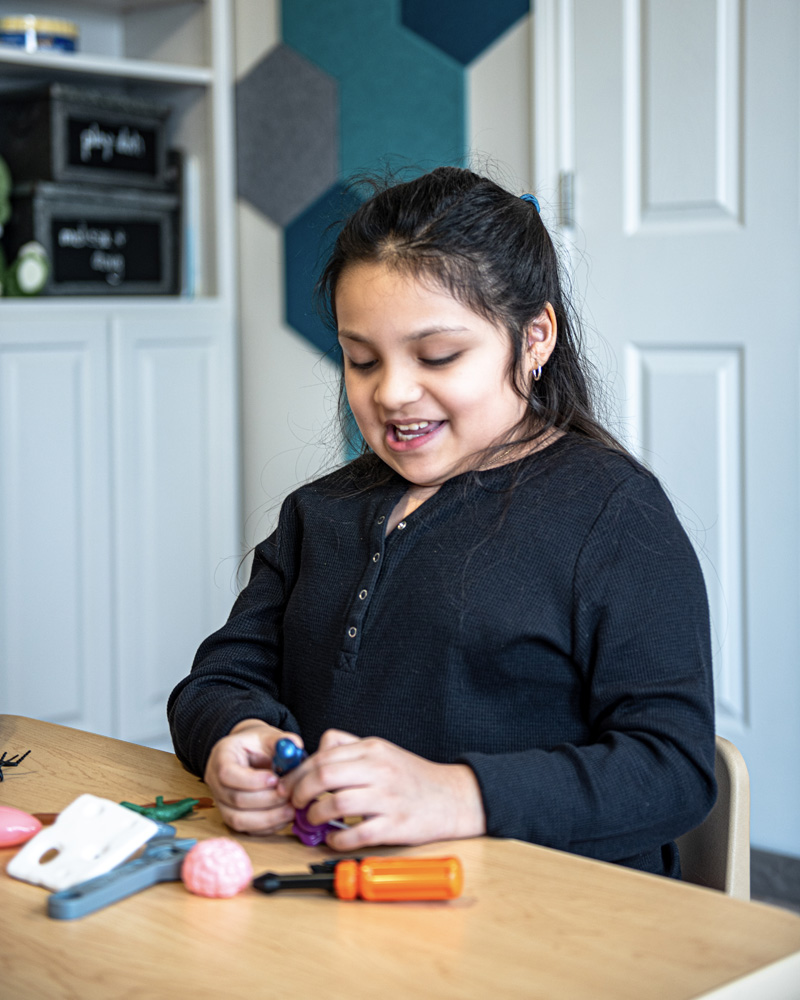
An expressive language evaluation helps determine how well a person is able to share their thoughts and ideas. During the assessment, a licensed speech-language pathologist will:
✔ Review communication milestones and concerns
✔ Observe how the individual shares ideas using spoken or written language
✔ Evaluate sentence structure, vocabulary, and storytelling skills
✔ Assess word retrieval and grammar usage
✔ Develop a personalized plan for support
Expressive language therapy is customized to support real-life communication in school, at home, and in social settings.
✔ Vocabulary Building – Expanding word knowledge and usage
✔ Sentence Construction – Practicing sentence structure and grammar
✔ Storytelling & Descriptions – Strengthening narrative organization
✔ Word Retrieval Strategies – Techniques to improve fluency and reduce frustration
✔ Visual Supports & Interactive Tools – Engaging, hands-on learning approaches

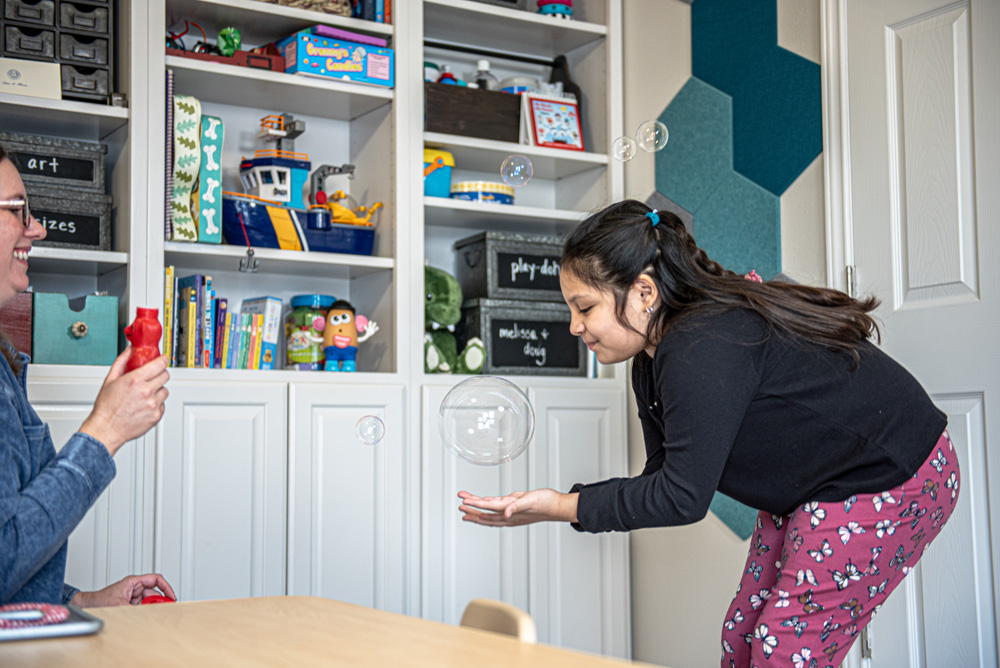
Expressive language is at the heart of how we connect, share, and participate in the world around us. When challenges arise, therapy can make a meaningful difference.
Remember:
✔ Expressive language impacts communication at home, school, and work
✔ Early support leads to stronger outcomes
✔ Language evaluations guide targeted support
✔ Therapy builds skills for clear, confident expression
